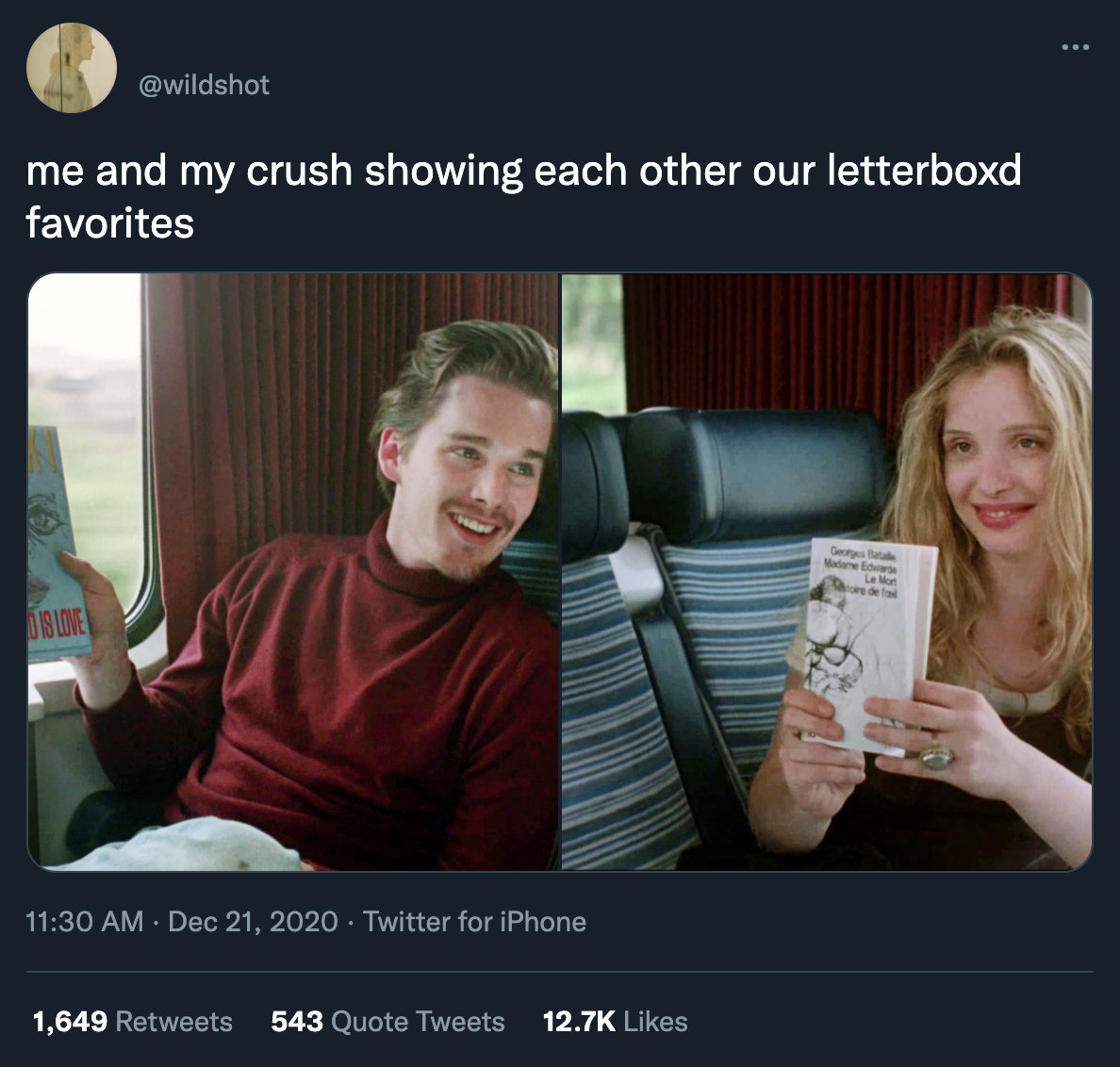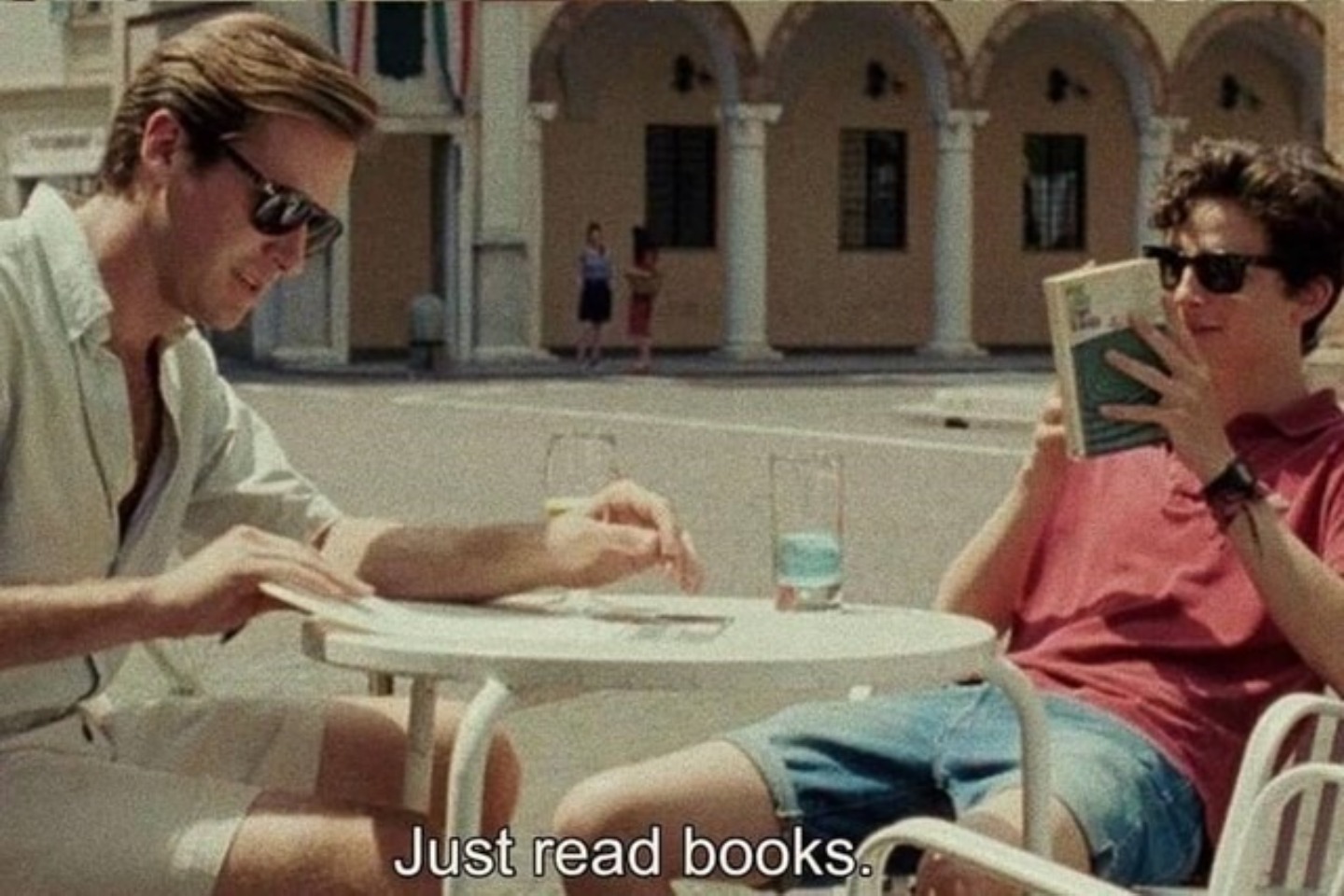In the past, self-tracking was only ever limited to the context of wellness: wearables and apps that gathered and analyzed data on the user’s physical activities, symptoms, or potential illnesses. Condensing these complex human functions into simple facts and figures supposedly makes it easier to identify points for improvement and keep us in good shape. We are, according to Dr. Deborah Lupton, a sociologist specializing in the intersections of digital media and health, “often encouraged to observe [ourselves] by their doctors, as a way of managing chronic conditions.”
But this idea of a “quantified self”—a cultural phenomenon centered on self-knowledge through numbers—has since encroached on every other facet of our personhood. We track our device usage on the built-in iPhone feature, our productivity through Forest or Momentum, and increasingly even our hobbies, with Goodreads and Letterboxd. These handy databases double as modern-day monitoring apps for the books we read and films we watch, respectively. Their popularity is easily explained at first glance. There’s something undeniably cool about seeing the evolution our preferences have undergone: in fact, this strengthens our resolve to carve out time for leisure in the hopes of developing or refining our tastes.
Both platforms also come with a community aspect perfect for interacting with fellow lovers of the craft; perhaps, to exchange recommendations or embark in spirited discussions surrounding trends and tropes du jour. But being stuck in a bubble where everyone possesses and rewards heightened levels of media consumption can create an unwavering need to keep up, lest they be deemed irrelevant.
Mia Vicino— also known as Brat Pitt, the eighth most-followed user on Letterboxd, with 97,000 followers — claimed that this urge started as soon as she took a film studies degree. “I was really subscribing to this idea that I had to watch a movie a day, sometimes at the behest of going out with friends or going to a party,” she shared. “At first, I told myself it was purely because of my studies but I do think that it was really because I felt satisfied looking at my [Letterboxd] diary and seeing how I was at par with everyone else I was following.”
Everything we do is now being measured and ranked against anyone who happens to be floating around in the ether: leisurely activities now have to be executed to the best of our ability, which is usually when they begin to feel like chores.
Goodreads takes this a notch higher through its instatement of annual reading challenges, where their 90 million members can set the number of books they want to finish within a year and log how much closer they are to achieving their goal. It’s hard not to feel like we should be doing and expecting more from ourselves, when we’re surrounded by serious bibliophiles reading thousands of pages during their free time. Karen, a Bookstagram content creator with a 40 thousand-strong follower base, created her Goodreads account for fun, initially. But as she started racking up friends and fans, “there was this constant pressure to prove my credibility by reading as many books as I could. Otherwise, I wouldn’t have anything new to talk or post and people would just find new, active accounts to follow instead.”
She also spoke about how the process of setting yearly goals could sometimes border on unhealthy behavior: “That’s mostly you versus yourself: setting the number of books you want to read in a year and realizing that you won’t be able to reach that goal puts a lot of stress. There’s also the act of meeting an existing goal and feeling the need to immediately set another one—it gets hard to know how to stop, especially if the people surrounding you just keep pushing forward.”
You start wanting to prove yourself to all these people by watching more esoteric films. It turns into this pressure to project a certain image.”
All this points, once again, to the pervasiveness of the soul-crushing, fun-sucking, hobby-destroying societal machinery that is grind culture. Everything we do is now being measured and ranked against anyone who happens to be floating around in the ether: leisurely activities now have to be executed to the best of our ability, which is usually when they begin to feel like chores. Now, it’s no longer enough to outperform others in terms of quantity. Our preferences are measured against some unspoken yardstick of coolness, and this effortless ability to meet a minimum threshold of acceptability dictates whether we’re the kind of person worth paying attention to.
“I figured that if I continue to read books that most people gravitate toward, I would have a bigger audience. I would finally belong in the reading community,” Karen shared. Mia backed this up, saying that being a woman and person of color makes it harder to get through to the “insular and homogenous” cinephile community. “The film canon itself is so male-dominated and while there have been some great movies by men, it’s difficult when you don’t feel represented in this art form. You start wanting to prove yourself to all these people by watching more esoteric films. It turns into this pressure to project a certain image.”
Such behavior prioritizes speed and abundance over the initial purpose of these activities: self-enrichment! Education! Fun! Instead of consciously taking time to absorb any important factoids or life lessons within the pages or on the screen, we think of what rating and review we’ll give before we finish. Once we’re finished, we’re so quick to move on to the next book or film, without giving as much thought to how it builds on our existing ecosystem of knowledge. What were initially meant to be personal and transformative acts have been quantified, optimized, and reduced to a performance that is subject to unwarranted scrutiny.
Right now, it seems like an easy answer would be to switch back to analog journaling or try out websites geared towards more personal usage. The Storygraph—touted as the “fully-featured, Amazon-free alternative to Goodreads”—comes with a customized roster of recommendations as well as less interaction between members, allowing each user to better focus on their own relationship with reading. But it can be argued that when we’re not busy trying to one-up one another, there are genuine benefits to being part of a community built on shared interests. Aside from getting to meet new friends that we can constantly learn from and fangirl with, these shine a light on older or less popular pieces of work that we may not have discovered otherwise.
Instead of isolating ourselves altogether, it’s probably best we bear in mind the real purpose of these platforms as well as those of the activities we frequently enjoy doing. Contrary to commonly espoused beliefs, our full participation is not a requirement to stay on Goodreads or Letterboxd—same with any other form of social media. We can choose not to log religiously, publicize our snarky or witty reviews, or shell out ratings that appeal to the greater majority and just stick to liking our friends’ activity or even being an active onlooker.

This doesn’t definitively determine the role literature or film play in our lives, and what kind of person we are. As Dr. Lupton herself said, “Digital self-tracking is very reductionist and limited as a way of gaining self-knowledge. It can be part of the ecology of information and sense-making but people should never rely on it exclusively. Our own sensory engagements with the world are usually far more intuitive and complex than digital data that we upload.”
In the end, nothing online is a perfect reflection of real life, no matter how precise the numbers we collect may to be. The world continues to spin, regardless of whether or not we have evidence to show we were there for it. Outside of the online sphere, we remain molded by the media we consume: we should consider ourselves lucky that the richness of insight and experience that we gain from our hobbies can never be fully captured in a set of statistics. What’s the fun in that?


